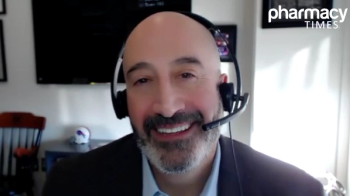
- December 2017 Heart Health
- Volume 83
- Issue 12
Self-Care for Cardiovascular Health
Which OTC products should these pharmacists recommend?
Case 1: Self-Care for Patients with Heart Failure
Q: CS, a 62-year-old man, was recently hospitalized for a heart attack and underwent a procedure that resulted in a stent being placed in one of the vessels in his heart. On top of receiving a number of new medications, CS was also told that the damage caused by the heart resulted in his developing heart failure (HF), requiring him to take a water pill every day and to watch his diet and salt intake, among other recommendations. He says he feels overwhelmed by these diagnoses and by the number of medications prescribed for these conditions and wants to discuss some of the lifestyle modifications he was told to make. What recommendations do you have about self-care and non-pharmacologic approaches to managing this condition?
A: Although there are different definitions and types of HF, congestive HF is considered a progressive syndrome where the heart cannot fill with or eject blood adequately to meet the demands of the body. A myocardial infarction (MI), undergoing a medical procedure, and being hospitalized are all stressful occurrences, and it is not surprising that CS feels overwhelmed. The pharmacist can play a critical role in ensuring optimal medication and dietary compliance to reduce complications and exacerbations of this condition. Non-pharmacologic therapy and self-care are paramount to reducing exacerbations and slowing the trajectory of disease. To ensure a good outcome for CS, evaluate his prescribed medication regimen and address any questions or concerns related to indication for use, adverse effects, and appropriate self-monitoring for response; underscore the role of dietary modification and its relationship to peripheral edema and fluid accumulation; have him monitor his weight and signs of volume overload; and stress the importance of preventative care, including getting vaccinated and avoiding non-prescription medications or supplements without health care provider oversight.1
Case 2: OTC Analgesics and HF
Q: CC, a 57-year-old woman, inquires about OTC treatment options for painful arthritis in her hands. She has a medical history of congestive heart failure, depression, dyslipidemia, and hypertension, and she takes several medications, including aspirin, atorvastatin, escitalopram, furosemide, lisinopril, and metoprolol. CC remembers being told at her last doctor’s visit to avoid certain medications, and she wonders if there is something safe she can take over the counter to relieve her pain, given her medical history and medication use. What recommendations do you have for her?
A: OTC nonsteroidal anti-inflammatory drugs (NSAIDs), including ibuprofen and naproxen, may exacerbate sodium and fluid retention and worsen HF symptoms.1 The sodium and water retention associated with this class of medications is thought to be a result of a compensatory mechanism to combat the effects of the NSAIDs on inhibition of renal prostaglandins and reduced glomerular filtration.2 Beyond sodium retention, peripheral vasoconstriction may result, as well as a reduction in the efficacy or increased risk of renal toxicity associated with the concomitant use of diuretic agents such as furosemide and the angiotensin-converting enzyme inhibitor, lisinopril, which she is also receiving. The antiplatelet effects of aspirin, along with the concomitant use of NSAIDs, may additionally increase the risk of bleeding. Aspirin should be taken 2 hours after an NSAID, if used concomitantly, to preserve its antiplatelet effect.3 For CC’s knee pain, recommend a trial of acetaminophen and referral to her physician for further evaluation.
Case 3: Dental Health for the Cardiac Patient
Q: AS, a 69-year old man, recently underwent a heart valve replacement surgery, which necessitates him taking warfarin for the rest of his life. His medical history is significant for cardiovascular disease, including dyslipidemia, HF, and hypertension. In addition to warfarin, AS says he takes a number of other medications for treatment of these disorders. At his last dental visit, his dentist gave him a prescription for an antibiotic to fill and take prior to his next appointment, but AS does not want to take another medication unless it is necessary. He wants another opinion on the importance of dental health, given his other medical issues. What recommendations to you have for AS on the importance of dental hygiene?
A: It is undisputable that a correlation between dental and cardiovascular health exists. Given that AS has undergone invasive cardiovascular surgery, the recommendations and prescription offered by his dentist suggest that he is at increased risk of infective endocarditis related to any manipulation of his gums during dental procedures. Underscoring the importance of oral hygiene, regular dental care, and appropriate antibiotic use, in this case, are particularly relevant counseling points. Additionally, it is prudent to remind AS to notify his dentist that he is taking warfarin prior to performing routine dental care.
Case 4: Vaccine Needs in Patients with HF
Q: ES, a 75-year old woman, wants to know if she should receive an additional dose of the pneumococcal vaccine. She has a medical history that is significant for cardiovascular disease, including having a MI several years ago, undergoing coronary artery bypass graft surgery, heart failure, hypertension, and dyslipidemia. ES takes numerous medications for these conditions, and a review of her medication profile indicates that she is taking antihypertensive, antilipemic, antiplatelet, and diuretic medications, among others. Although she remembers receiving a “pneumonia shot” before being discharged from the hospital after experiencing her heart attack, a friend told her that she should get another one because the recommendations have changed. What recommendations on the use of the pneumococcal vaccine do you have for ES?
A: Pneumococcal disease, an infection caused by contact with infectious respiratory droplets, is caused by infection with the bacteria, Streptococcus pneumonia. Those with medical comorbidities, including being immunocompromised, having functional or anatomic asplenia, smoking, suffering from asthma, or having other heart, kidney, liver, or lung, diseases, are particularly at risk for developing disseminated disease.4 Based on her age, ES may be eligible to receive both the pneumococcal polysaccharide vaccine (PPSV23) and pneumococcal conjugate vaccine (PCV 13), depending on her vaccination history. Based on her extensive cardiac history, she may have received the PPSV23 vaccine prior to age 65 years or more recently, after her hospitalization. Encourage ES to check with other health care providers and her medical records to determine if this is the case. If she has already been immunized with one dose of PPSV23, she should receive PCV13 and another dose of PPSV23 at least 1 year after the PCV13 dose and at least 5 years after the most recent dose of PPSV23.4
Dr. Bridgeman is a clinical associate professor at the Ernest Mario School of Pharmacy, Rutgers University, and an internal medicine clinical pharmacist at Robert Wood Johnson University Hospital in New Brunswick, New Jersey.Dr. Mansukhani is a clinical associate professor at the Ernest Mario School of Pharmacy, Rutgers University, and a transitions-of-care clinical pharmacist at Morristown Medical Center in Morristown, New Jersey.
References
- Ulbrich TR, Krnsky DL. Self-care components of selected chronic disorders. In: Krinsky DL, ed. Handbook of Nonprescription Drugs: An Interactive Approach to Self-Care. 18th ed. Washington, DC: American Pharmacists Association; 2015.
- Bleumink GS, Feenstra J, Sturkenboom MC, Stricker BH. Nonsteroidal anti-inflammatory drugs and heart failure. Drugs. 2003;63:525-34.
- Horn JR, Hansten PD. Antiplatelet effects of aspirin: which NSAIDs interact? Pharmacy Times. pharmacytimes.com/publications/issue/2013/may2013/antiplatelet-effects-of-aspirin-which-nsaids-interact. Published May 17, 2013. Accessed November 27, 2017.
- Centers of Disease Control and Prevention. Recommended immunization schedule for adults aged 19 and older, United States, 2017. cdc.gov/vaccines/schedules/downloads/adult/adult-combined-schedule.pdf. Accessed November 29, 2017.
Articles in this issue
about 8 years ago
Chicago Acts to Address Pharmacist Workload and Patient Safetyabout 8 years ago
Departing PTCB Director Reflects on Evolving Technician Rolesabout 8 years ago
Generic Products (December 2017)about 8 years ago
Case Studies (December 2017)about 8 years ago
Can You Read These Rxs? (December 2017)about 8 years ago
Rx Products (December 2017)about 8 years ago
A Change of Heart: How Brown Bagging Can Bring Clarityabout 8 years ago
Pharmacist Takes Plea Deal in Billing Fraud Caseabout 8 years ago
A Good Start: President Trump and the Opioid Abuse Crisisabout 8 years ago
KevzaraNewsletter
Stay informed on drug updates, treatment guidelines, and pharmacy practice trends—subscribe to Pharmacy Times for weekly clinical insights.


























